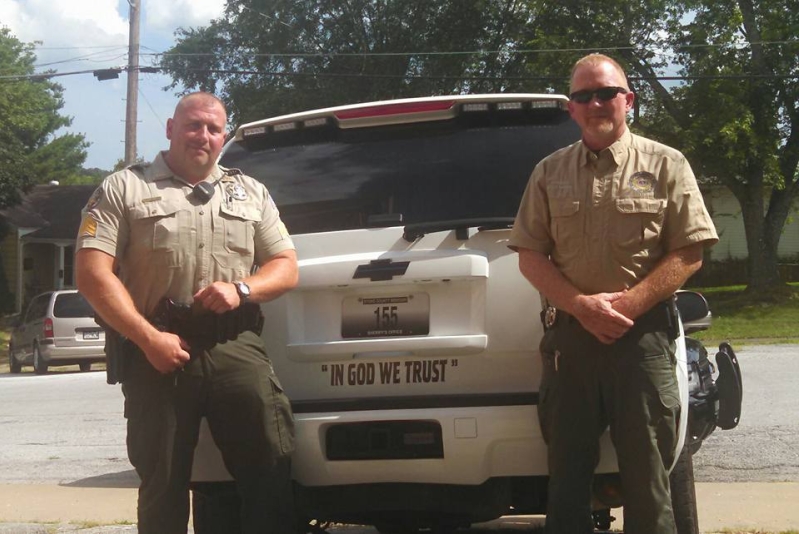
A sheriff in Tennessee issued a simple yet powerful response after an atheist group called for the removal of "In God We Trust" decals from patrol calls.
On Monday, Henderson County Sheriff Brian Duke received a cease and desist letter from the Freedom From Religion Foundation demanding that he remove the motto "In God We Trust" from any patrol cars.
Duke sent a response letter with a single word: "NO."
"The U.S. Supreme Court says it's perfectly legal," Duke told WBBJ-TV of his brief letter. "Basically everything I had to say I included in my letter."
He also argued that the current expression doesn't single out one specific religion. "There's so many religions that acknowledge the existence of a God," he said.
The Washington Post reports that over the past several months, bumper stickers carrying the motto "In God We Trust" have been placed on cars driven by police officers, sheriff's deputies and firefighters in Illinois, Kentucky, North Carolina and elsewhere.
"Right now it seems like in our country law enforcement has been painted with a brush that we're bad guys," Bay County, Fla., Sheriff Frank McKeithen told the news outlet of the trend. "So I was trying to think of something that might set a fire to our guys. We want to be proud and we want people to be proud of us, and we know we're better than how people portray us."
In July and August, the FFRF sent letters to 30 sheriffs' and police departments around the country threatening to sue those using the national motto on their vehicles, Breitbart reports.
"It is inappropriate for the sheriff's office to display 'In God We Trust' on county property," foundational co-president Annie Laurie Gaylor wrote. "The fact that these stickers were privately funded indicates that you know it is inappropriate for the government to fund religious statements."
Greg Coursey, a sheriff in Georgia who received such a letter earlier this week, defended his department's decision to use the decals, telling Breitbart, "I thought it was time that we let people know what we believe and who we trust. We have to put our trust in God to do our work ... I want the people to know that we do trust in God and I think it makes them feel more comfortable that they do have a sheriff and law enforcement officers in this county that do put their trust in God."
Coursey does not have any plans to surrender; he stated, "First a born again Christian, a follower of Jesus Christ, first and then I'm sheriff after that. I do look to God and I put my trust in him everyday to do this job." He said he will refuse to remove the decal, telling the news outlet, "I don't think so, I don't think so. No I'm not ashamed of the Gospel."
Sheriff Michael Adkinson in Walton County, Florida also issued a pointed response to the FFRF, writing, "If the Freedom From Religion Foundation wishes us to take them off our vehicles I suggest that they get a judge's order or a new sheriff. I see absolutely no conflict in this matter."
He added, "You are obviously unaware that 'In God We Trust' is the state motto of the state of Florida, and has been since 1886. Additionally it is the motto of the United States."
Dan Barker, co-president of the FFRF, told TheBlaze that while the group isn't finished fighting, he is uncertain of their next move.
"We can't predict what we'll do next," he said. "Even if we wanted to sue we have to have a plaintiff there who's willing to sign on."
He added, "We would love to sue over a case like this."
In 2013, the FFRF and 19 plaintiffs sued the Treasury Department, arguing that the motto's usage on public buildings and property breached the wall between church and state.
While challenges to "In God We Trust" on currency have been unsuccessful, Barker told TheBlaze he hopes the police patrol car issue could reignite the debate and give atheists another chance to "question the legitimacy and constitutionality of including the line on public property."







